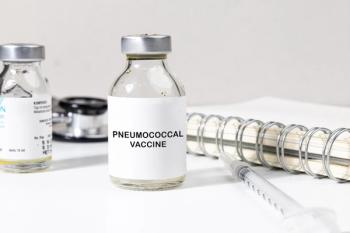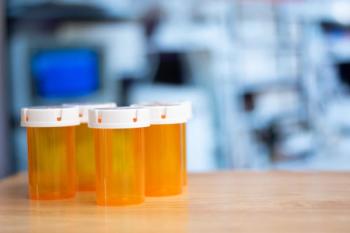
Pot or Not: An Overview of Hemp- and CBD-Containing Products
For decades, hemp was considered just another form of the cannabis plant under the Controlled Substances Act. The act classified all forms of cannabis as marijuana. Both marijuana and THC, in any concentration, were listed as Schedule I controlled substances, making hemp illegal.
Then the 2018 Farm Bill was passed, legalizing industrial hemp under federal law. The bill removed hemp and its derivative products from the Drug Enforcement Administration’s Schedule I list and reclassified it as an industrial plant permitted for commercial cultivation and use. The legislation also brings up a lot of questions for patients and pharmacists, so here’s a rundown of the major issues.
Hemp: It’s Rope, Not Dope
For many, the distinction between cannabis, hemp and marijuana remains unclear. Cannabis is a genus of plants that includes the two species hemp and marijuana (i.e., Cannabis sativa L). One of the major components derived from hemp is CBD, a compound that does not produce a high. It is the THC in marijuana that produces a psychoactive effect. CBD, a molecule found naturally in the cannabis plant, has shown anti-seizure benefits, among other medical uses. It is also said to induce analgesic, anti-inflammatory, anti-compulsive, anti-muscle spasm, and anti-anxiety effects.
“Marijuana” refers to the psychotropic drug — the subject of much of today’s legal debate. It contains active THC levels that typically range from 5% to 35%. In contrast, hemp may not contain more than 0.3% of THC on a dry weight basis, no matter how much CBD it produces. Hemp, which contains fibers, has been cultivated for a variety of industrial purposes, such as making rope, and, increasingly, to produce CBD. Hemp may be used in other applications for which marijuana is unsuitable, including health-oriented dietary supplements, skin products, clothing and accessories.
Hempseed Oil Versus Hemp CBD Oil
Hempseed oil is extracted by cold pressing — typically, without chemicals or additives — the hemp plant’s seeds, which contain extremely low levels of THC, if any at all. Hempseed oil delivers a wide range of health benefits: It supplies a good dose of protein, contains omega-3 and omega-6 fatty acids, counteracts aging, and promotes cardiovascular health.
Hemp CBD oil is produced from the plant’s flower. The concentrated extract is rich in CBD and usually sold in tincture-size bottles. This extract has been thought to treat epilepsy and a variety of other illnesses, including anxiety, autoimmune disorder, post-traumatic stress disorder, depression, schizophrenia, heart disease, cancer and autism.
Remaining Obstacles and Challenges
The 2018 Farm Bill represents a drastic reworking of federal hemp policy, but legalization carries a number of regulatory restrictions — and federal and state barriers to the sale of hemp products have not disappeared. Many states have yet to conform their laws to the federal bill, and some contend that even if hemp is no longer a Schedule I substance for federal purposes, it remains one under existing state laws.
First, the bill permits only the sale of hemp products that have been specifically authorized by applicable laws. These products must be made from industrial hemp and contain no more than 0.3% THC on a dry weight basis. Any cannabis plant that contains more than 0.3% will not be considered hemp — i.e., marijuana — so it has no legal protection under the new legislation.
Next, the FDA still considers hemp a drug; therefore, the agency categorizes it as an illegal controlled substance. Hemp may not be added to foods and or health products without FDA approval. The same day the bill was passed, the FDA issued a statement advising that, despite hemp’s new legal status, the FDA’s opinion on the matter has not changed and CBD companies must obtain FDA approval. The statement reads, in part:
We treat products containing cannabis or cannabis-derived compounds as we do any other FDA-regulated products — meaning they’re subject to the same authorities and requirements as FDA-regulated products containing any other substance. This is true regardless of the source of the substance, including whether the substance is derived from a plant that is classified as hemp under the Agriculture Improvement Act.1
The FDA takes the position that it’s still illegal to market CBD as a dietary supplement without the agency’s approval. If producers of cannabis and cannabis-derived products claim in their marketing and promotional materials that these products are intended to diagnosis, cure, mitigate, treat, or prevent disease, then the products are considered new drugs that must go through the approval process before they may be marketed. Selling unapproved products with unsubstantiated therapeutic claims violates the Federal Food, Drug, and Cosmetic Act.
The FDA did indicate that some hemp-derived ingredients, such as hempseed, hempseed protein and hempseed oil, received the more benign generally recognized as safe (GRAS) rating, which means additional approvals aren’t required. Therefore, these products may be legally added to foods for human consumption without food additive approval — provided that these products comply with all other requirements and do not make disease treatment claims.
Pharmacists and Due Diligence on the Sale of Hemp Products
Manufacturers, distributors and sellers of hemp products still must comply with state laws governing controlled substances. Some states simply incorporate federal controlled substance schedules by reference, but most have drawn up their own schedules, which do not automatically reflect changes in federal law. On the federal level, substances are placed into one of five schedules based on whether they have an accepted medical use, abuse potential and likelihood of causing dependence if abused.
A pharmacy that handles hemp products must carefully review its state’s definition of marijuana to determine whether it excludes hemp and whether it lists THC as a controlled substance. Knowing whether a producer is legal and legitimate will be a vital part of a pharmacy’s due diligence. Health claims about hemp products are regulated similar to claims made about other products, so pharmacies should proceed carefully and consult their attorneys before advertising any such claims.
Ned Milenkovich, Pharm.D., J.D., is chairman of the health care law practice at Much Shelist P.C. in Chicago. He is also the former vice chairman of the Illinois State Board of Pharmacy. He can be reached at 312-521-2482 or
Reference
- Statement from FDA commissioner Scott Gottlieb, M.D., on signing of the Agriculture Improvement Act and the agency’s regulation of products containing cannabis and cannabis-derived compounds. Food and Drug Administration website.
fda.gov/news-events/press-announcements/statement-fda-commissioner-scott-gottlieb-md-signing-agriculture-improvement-act-and-agencys. Published December 20 , 2018. Accessed July 15, 2019.
Newsletter
Pharmacy practice is always changing. Stay ahead of the curve with the Drug Topics newsletter and get the latest drug information, industry trends, and patient care tips.























